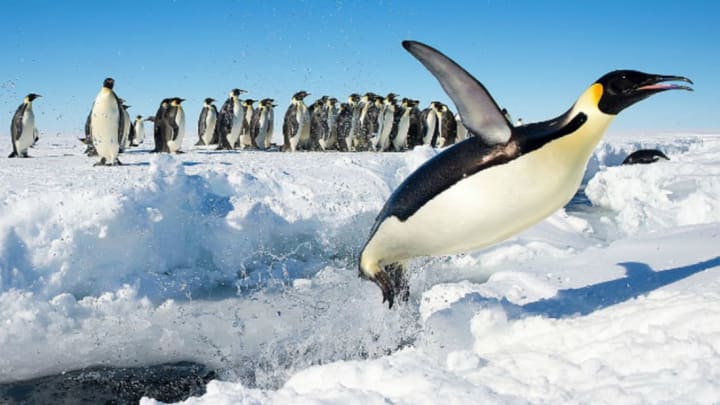In a move hailed by conservationists, an international governing body has created the world’s largest marine protected area in the Ross Sea. The designation will protect 598,000 square miles of water off the Antarctic coast, a region teeming with wildlife from krill to killer whales.
The Commission for the Conservation of Antarctic Marine Living Resources (CCAMLR) was created by international convention in 1982 and includes delegates from 24 countries, including the United States, and the European Union. The commission was founded in response to growing commercial fishing interest in Antarctic krill—an essential link in the marine food chain.
Both krill and plankton are abundant in the near-pristine Ross Sea. Their presence provides food for the tiniest sea creatures, which in turn are eaten by little animals, onward and upward all the way to pods of minke and killer whales.
“The Ross Sea is probably the largest ocean wilderness left on our planet,” marine biologist Enric Sala told National Geographic. “It is the Serengeti of Antarctica, a wild place full of wildlife such as emperor penguins, leopard seals, minke whales, and killer whales. It's one of these rare places where humans are only visitors and large animals rule.”
The sea’s isolation kept it safe for a long time. But as commercial interests enlarge and fuel prices drop, even these frigid waters will need more official forms of protection.
The new ruling prohibits fishing in 72 percent of the reserve, while other areas will be open to limited collections for scientific purposes. "A number of details regarding the MPA are yet to be finalized but the establishment of the protected zone is in no doubt and we are incredibly proud to have reached this point,” Andrew Wright, CCAMLR executive secretary, said in a statement.
Protections will go into effect in December 2017 and hold for 35 years. It’s a very welcome development, say conservationists, but it’s also a temporary fix.
Rod Downie is the polar program manager for the World Wildlife Fund. “This is a milestone for the conservation of Antarctica and the Southern Ocean,” he told New Scientist. “We want a permanent and enduring agreement for future generations that will safeguard the whales, penguins, seals and thousands of other amazing species that live there.”
Know of something you think we should cover? Email us at tips@mentalfloss.com.
